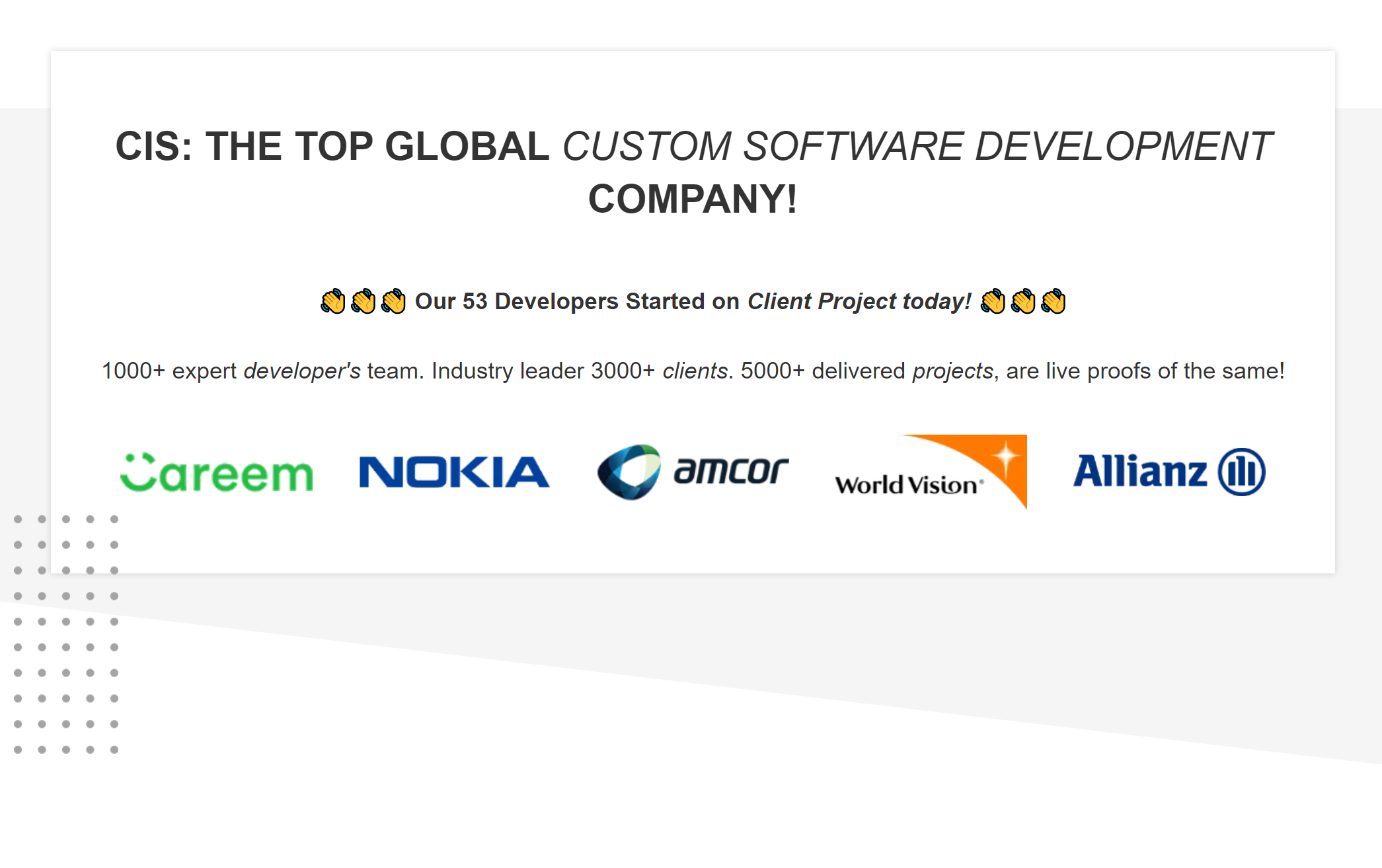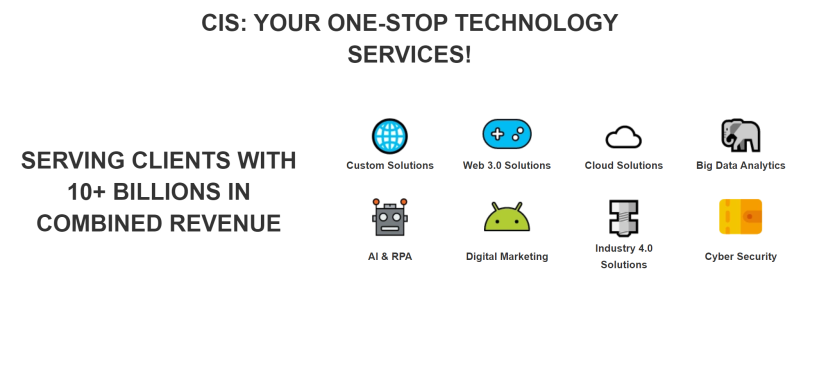Maximizing ROI: The Cost and Benefits of Adopting Oracle Erp For Automation for Your Business
- Oracle ERP for Automation - Detailed Analysis by Enterprise Solutions Experts
Request A Free Consultation - Why Use Oracle ERP For Automation



Why Mid-size Companies and Enterprises needs Oracle ERP For Automation:
Oracle ERP for Automation provides mid-size companies and enterprises with a comprehensive suite of tools to streamline their operations, reduce costs, and improve efficiency. It allows them to automate key business processes such as financials, supply chain management, human resources, customer relationship management (CRM), enterprise resource planning (ERP), analytics and reporting. With Oracle ERP for Automation, businesses can gain real-time visibility into their operations and make informed decisions quickly. Additionally, it helps organizations manage risk by providing secure access to data across multiple systems while ensuring compliance with industry regulations. By leveraging the latest technologies like artificial intelligence (AI) and machine learning (ML), businesses can further optimize their processes for maximum productivity.
Benefits of using Oracle ERP For Automation in Mid-size companies and Enterprises:
1. Improved Efficiency:
Oracle ERP for Automation can help mid-size companies and enterprises to streamline their operations, allowing them to run more efficiently and reduce costs. By automating processes such as order entry, invoicing, inventory management, and financial reporting, organizations can save time and money while increasing accuracy.
2. Increased Productivity:
With automated processes in place, employees can focus on more strategic tasks instead of mundane administrative work. This allows companies to maximize their resources while improving overall productivity levels across the organization.
3. Enhanced Visibility:
Oracle ERP for Automation provides real-time visibility into key areas of business operations such as sales performance, customer service metrics, supply chain data etc., enabling managers to make informed decisions quickly and accurately.
4. Scalability & Flexibility:
The system is designed with scalability in mind so it can easily adapt to changing needs without requiring significant investments in hardware or software upgrades . Additionally , its modular design makes it easy for users to customize the solution according to specific requirements .Detailed Features of Oracle ERP For Automation for Mid-size companies and Enterprises:
1. Financial Management:
Oracle ERP for Automation provides financial management solutions that are designed to help mid-size companies and enterprises manage their finances more effectively. This includes features such as budgeting, forecasting, cash flow management, accounts receivable/payable, general ledger accounting, taxation compliance and reporting.
2. Supply Chain Management:
Oracle ERP for Automation helps businesses streamline their supply chain operations by providing tools to track inventory levels and optimize purchasing decisions. It also offers features such as demand planning, order fulfillment, warehouse management and transportation planning & execution capabilities.
3. Human Resources Management:
Oracle ERP for Automation allows organizations to manage their human resources processes more efficiently with its suite of HRM modules including employee self-service portals, payroll processing & benefits administration capabilities among others.
4. Customer Relationship Management (CRM):
Oracle ERP for Automation provides CRM solutions which enable businesses to better understand customer needs in order to improve customer service levels while reducing costs associated with managing customer relationships over time . Features include sales automation tools , marketing campaign tracking & analytics along with lead generation capabilities .5. Business Intelligence & Reporting : With the help of business intelligence dashboards , users can gain insights into key performance indicators (KPI) across various areas of the organization . Reports can be generated quickly using predefined templates or customized reports can be created using a drag -and -drop interface .
Who are the Users of Oracle ERP For Automation:
Oracle ERP for Automation is used by many organizations across various industries, including manufacturing, retail, hospitality, healthcare and finance. Common customers include Oracle Corporation itself, Dell Technologies Inc., Boeing Co., Hewlett Packard Enterprise Company, Walmart Stores Inc., The Home Depot Inc., Lowe's Companies Inc., Siemens AG and Volkswagen Group.
How to ensure Data Security and Compliance with Oracle ERP For Automation:
1. Ensure that access to the Oracle ERP system is limited to authorized personnel only, and that user accounts are safeguarded with strong passwords.
2. Implement a comprehensive security policy for all users of the system, including logging in from remote locations and using devices such as laptops or tablets.
3. Control physical access to servers hosting the Oracle ERP system by restricting entry into data centers and other areas where sensitive information is stored.
4. Establish an audit trail of all transactions within the system, so any suspicious activity can be tracked down quickly and easily identified if needed.
5. Utilize encryption techniques when transmitting confidential data across networks or over public internet connections in order to protect it from unauthorized interception or tampering with its contents during transit timeframes between two points on a networked device/computer systems/etc..
6. Regularly back up your databases and store them securely offsite in case of loss due to disasters like fires, floods etc., which could cause permanent damage to your records otherwise kept electronically onsite only .
7 Comply with industry standards for privacy protection such as GDPR (General Data Protection Regulation) by implementing appropriate safeguards for collecting personal data from customers or employees who use the ERP software solution you have chosen
How Oracle ERP For Automation can increase organization Productivity, Agility, and Profitability:
Oracle ERP for Automation can increase organization productivity, agility, and profitability by streamlining processes, improving data accuracy and visibility, and reducing manual labor. Automating key business processes such as budgeting, forecasting, purchasing and inventory management will help organizations save time while increasing efficiency. By providing real-time insights into operations across the entire value chain with integrated analytics capabilities embedded in Oracle ERP for Automation solutions organizations can make more informed decisions quickly to improve customer service levels. Additionally automating financial reporting allows organizations to reduce costs associated with manual accounting tasks while ensuring compliance with regulatory requirements.
How to Measure KPIs and increase Benefits of implementing Oracle ERP For Automation in Mid-size companies and Enterprises:
1. Establish measurable KPIs:
When implementing Oracle ERP for Automation, it is important to establish measurable key performance indicators (KPIs) that will help you assess the success of the implementation and provide a way to measure its benefits. Examples of KPIs include cost savings, time savings, process improvements, customer satisfaction levels, employee productivity gains and more.
2. Track progress:
Once you have established your KPIs, track progress regularly throughout the implementation process. This will allow you to identify areas where improvement can be made or additional resources may be needed in order to achieve desired outcomes from automation.
3. Identify areas for improvement:
As part of tracking progress during the implementation phase of Oracle ERP for Automation in mid-size companies and enterprises, look for opportunities to improve processes or add new features that could increase efficiency further or reduce costs associated with manual labor required before automation was implemented.
4. Monitor results over time:
After successful implementation of Oracle ERP for Automation in mid-size companies and enterprises has been completed, continue monitoring results over time so that any issues can be identified quickly and addressed accordingly in order to maximize return on investment (ROI). Additionally, this allows you to adjust KPIs as necessary based on changing business needs or conditions within the organization itself as well as external factors such as industry trends or customer demands/expectations that may affect how automated processes are utilized by employees across departments within an enterprise settingHow Oracle ERP For Automation can increase Employee Morale in your organization:
Oracle ERP for Automation can increase organization employee morale by streamlining processes, reducing manual tasks and providing employees with more time to focus on meaningful work. It can also reduce stress levels as it eliminates the need to manually complete tasks that are prone to errors and inaccuracies. Additionally, Oracle ERP for Automation offers a range of features that make working easier and faster, such as automated notifications, reminders and alerts so employees don't miss deadlines or important tasks. Finally, the automation capabilities in Oracle ERP allow managers to track performance metrics quickly which helps them identify areas where improvements are needed. This makes employees feel valued and appreciated since their hard work is being recognized.
How Oracle ERP For Automation is Better than its Competitors:
Oracle ERP for Automation offers a range of advantages over its competitors, such as:
1. Fast and efficient implementation - Oracle provides an automated process to quickly implement the system with minimal manual effort.
2. Enhanced security features - Oracle's advanced security features ensure that customer data is safe and secure from malicious attacks or unauthorized access.
3. Scalability - With Oracle, businesses can scale their operations easily without worrying about compatibility issues or additional costs associated with upgrades.
4. Robust analytics capabilities - Oracle ERP for Automation comes equipped with powerful analytics capabilities, allowing users to gain deep insights into their business processes and performance metrics in real-time.
5. Comprehensive integration options - The platform has comprehensive integration options which allow users to connect multiple systems together in order to streamline operations across departments and locations
Cost to Develop & Implemention of Oracle ERP For Automation:
The cost of developing and deploying Oracle ERP for Automation can vary greatly depending on the specific needs of the business. Generally, it can range from tens of thousands to millions of dollars. Factors that will affect the cost include the size and complexity of your organization, customization requirements, licensing costs, implementation services fees, hardware costs, training expenses and ongoing support costs.
Why outsourcing implementation services for Oracle ERP For Automation is better for Mid-size companies and Enterprises:
Outsourcing implementation services for Oracle ERP for Automation is a great option for mid-size companies and enterprises because it can provide them with the expertise of experienced professionals who have worked on similar projects before. Outsourced experts are familiar with the platform, understand its complexities, and can help ensure successful implementations. Additionally, outsourcing implementation services allows companies to focus their internal resources on other areas that require attention while still getting access to an efficient and cost-effective solution. Furthermore, outsourced experts can also provide ongoing support after the initial implementation is complete.


